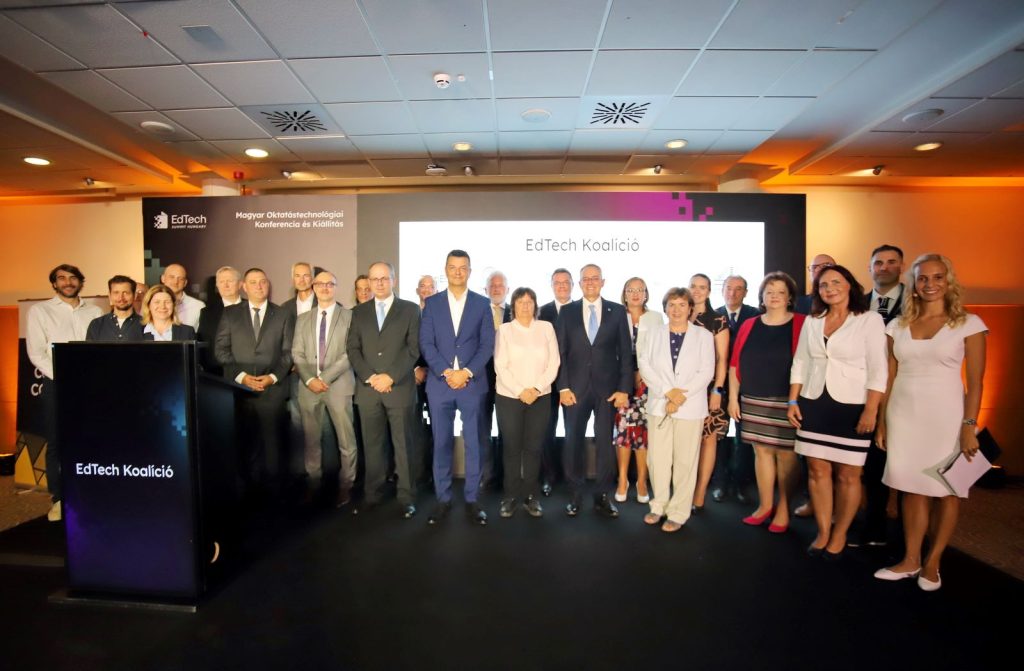Budapest, September 4, 2023 – The Educational Technology Coalition, aimed at fostering the development of educational technology domestically, was formed with twenty members, including higher education institutions, government agencies, and market companies.
Among the coalition’s members are institutions such as Eötvös Loránd University, Széchenyi University, Pannon University, Edutus University, Gábor Dénes University, as well as the Educational Office, the National Office of Vocational Education and Adult Training, and the Klebelsberg Center. The inaugural session was accompanied by the Educational Technology Conference and Exhibition, which attracted nearly 200 educators and was opened by Gergely Fábián, State Secretary for Industry Policy and Technology at the Ministry of Economic Development.
On September 2, the founding meeting of the EdTech Coalition took place at the Mathias Corvinus Collegium headquarters, coinciding with the highly anticipated EdTech Summit Hungary – Hungarian Educational Technology Conference and Exhibition. At the conference, professionals presented domestic and international educational technology innovations to participating teachers, covering topics such as artificial intelligence, the challenges of the digital world, online child protection, and talent development. Additionally, fifteen exhibitors specializing in educational technology showcased their products and services. The EdTech Summit Hungary was a companion event to the 35th International Olympiad in Informatics.
Technological development in education is essential for competitiveness
The EdTech Coalition provides networking opportunities for universities, schools, leading experts in educational technology, and industry leaders. Through collaboration, coalition members receive up-to-date information on available funding opportunities and the latest market trends. As a member of the European EdTech Alliance and the Global Alliance for Technology in Education, the Coalition also provides international connections and advocacy for its members. By facilitating direct engagement, the EdTech Coalition supports the creation of high-quality and internationally competitive educational technology products. The collaboration aims to enable stakeholders in Hungarian education to benefit from educational technology innovations.
Gergely Fábián, State Secretary for Industry Policy and Technology at the Ministry of Economic Development, opened the EdTech Summit Hungary – Hungarian Educational Technology Conference and Exhibition, emphasizing the crucial role of technological development in maintaining the competitiveness of education. He highlighted that building an ecosystem and fostering dialogue are effective tools for this purpose.
“Digitization is not optional, just as the presence of digitization in education is not optional. Today’s children need strong digital skills to meet the unknown expectations they will face in their working lives. The EdTech coalition aims to offer cooperation in this challenging task to various stakeholders,” added Gergely Fábián.


